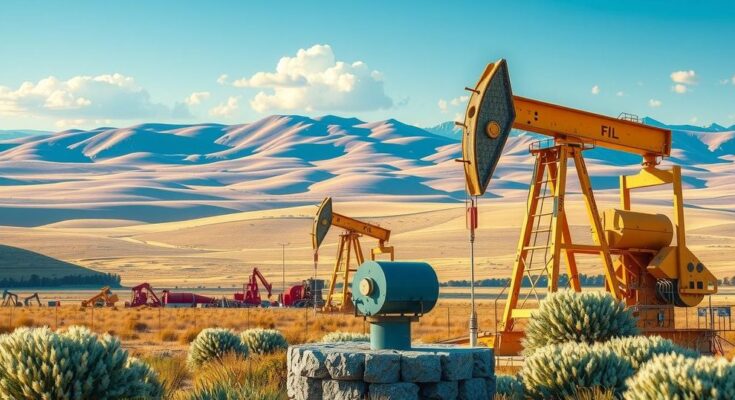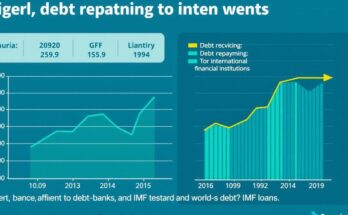Argentina is currently experiencing an oil boom, primarily driven by expansion in the Neuquén Basin, which has raised concerns over economic equity, environmental safety, and social impacts. The geopolitical climate under President Milei has shifted towards fossil fuel reliance, compromising renewable energy initiatives, despite achieving a positive energy trade balance for the first time in 13 years. Local communities are questioning the benefits from the booming oil sector as poverty levels remain concerning.
Argentina is undergoing significant oil production growth, with projections indicating it may become a key global supplier despite ongoing economic challenges. The economy has struggled with declining per capita GDP, increasing poverty, and worsening income distribution for over a decade. Critiques have surfaced regarding the equitable distribution of oil revenues, access to energy, and environmental impacts of the expansion, particularly in the Neuquén Basin, which is witnessing aggressive drilling operations.
The Neuquén Basin is at the forefront of Argentina’s oil boom, where approximately 3,300 wells have been drilled over the past decade, including 440 wells completed in 2024, with more planned for the upcoming year. Researcher Agustín González emphasizes the detrimental effects of hydraulic fracturing, or fracking, on the traditionally agricultural region, warning it jeopardizes local land uses driven by agricultural practices.
González explains that fracking consumes an enormous amount of water, mixed with chemicals, to extract shale hydrocarbons from the earth. He cautions that it poses environmental risks to agriculture and local communities, advocating for a balanced approach between resource development and ecological conservation. A study from a collaboration between academic and environmental organizations stresses the necessity of a robust regulatory framework to mitigate irreversible damage from fracking activities.
However, current political developments present challenges to environmental governance. President Javier Milei’s administration has demoted the Ministry of Environment, eliminated renewable energy funding, and rejected previous climate goals, shifting the focus towards fossil fuel exploitation. This political stance runs counter to past legislative efforts aimed at increasing renewable energy contributions to the national grid.
In a positive light, Argentina recorded a positive energy trade balance for the first time in 13 years in 2024, with a US$5.668 billion surplus due primarily to the expansion in the Vaca Muerta formation. This area now significantly contributes to national oil and gas production and has brought substantial growth in energy exports despite challenges in conventional oil output.
Analysts predict that the success of the Vaca Muerta formation may lead to US$30 billion in annual oil exports by 2030, highlighting the potential for further growth in the sector. While the nation has transitioned from a deficit in energy trade to surplus, the overall benefits to local communities remain questionable, with reports of declining domestic fuel demand and unmet socio-economic needs despite considerable investment in Neuquén.
Significantly, oil royalties in Neuquén are primarily allocated to public salaries, limiting funds available for infrastructure and social programs, which has kept poverty levels alarming. The local population, primarily impoverished, does not substantially benefit from the increased oil production or reduced energy prices, posing questions regarding the fair distribution of oil revenue across the region.
In summary, Argentina’s oil boom presents both opportunities and challenges. While the nation is on track to become a significant player in the global oil market, questions remain regarding the equitable distribution of wealth, environmental sustainability, and the overall well-being of local communities affected by the booming industry. Government policies under President Milei may further complicate the balance between economic growth and environmental stewardship, marking a critical period for Argentina’s energy future.
Original Source: www.globalissues.org




